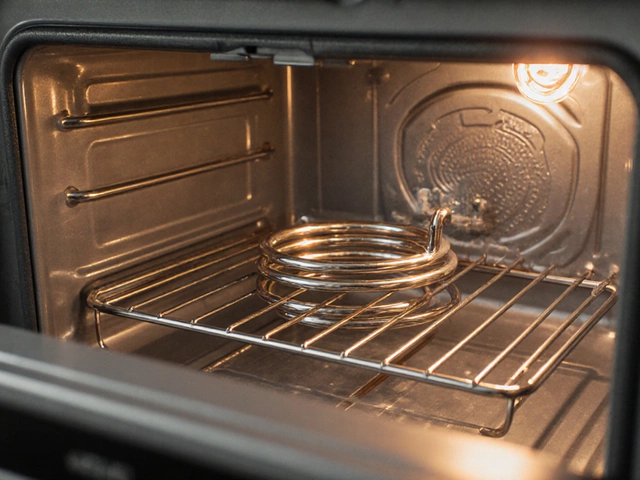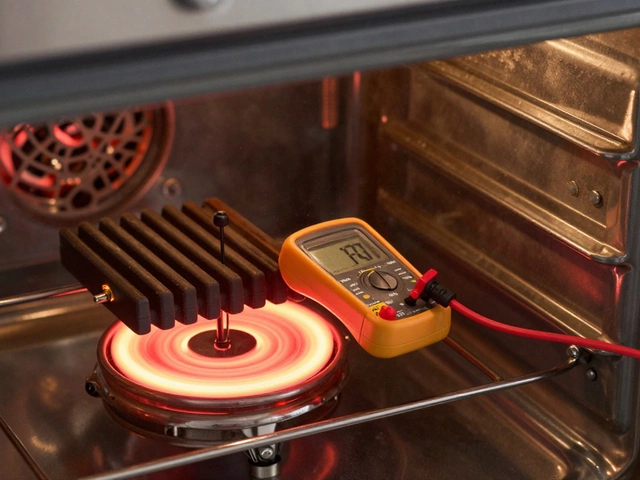Electric Hob Repair: Can Your Broken Hob Be Fixed?
June 12 2025Air Quality: Keep Your Home Fresh and Safe
Good air quality isn’t a luxury; it’s a basic need. Stale or polluted indoor air can make you feel sluggish, trigger allergies, or even cause long‑term health problems. The good news is you can improve it without a major renovation – most of the work involves the appliances you already have.
Why Good Ventilation Matters
Every time you cook, shower, or use a gas heater, moisture and pollutants are released into the room. Without proper ventilation those particles settle on walls, form mould, and linger in the breathing zone. Extractor fans in kitchens and bathrooms move this air outside, preventing condensation and keeping the indoor environment dry. When fans are missing, broken, or clogged, you’ll notice a lingering smell, fogged mirrors, or a musty taste in the air.
Gas appliances, like boilers and water heaters, also emit carbon monoxide and nitrogen dioxide if they aren’t burning cleanly. Regular servicing keeps the combustion process efficient and stops harmful gases from seeping into living spaces. So a well‑maintained boiler does more than heat your home; it protects the air you breathe.
Simple Steps to Boost Indoor Air Quality
1. Check your extractor fans monthly. Turn them on for a minute and listen for rattles or weak airflow. If the fan sounds noisy or the suction feels sluggish, it’s time for a clean.
2. Clean or replace filters. Kitchen rangehood filters collect grease that blocks airflow. Wash them with warm, soapy water every 2‑3 months, or swap them out if they’re disposable. Bathroom fans often have a simple mesh screen – pull it out, vacuum, and replace if it’s torn.
3. Schedule an annual boiler service. A certified engineer will check the burner, flue, and safety valves. This not only keeps your heating efficient but also ensures no carbon monoxide leaks.
4. Watch for warning signs. If you see condensation on windows, hear a whirring fan that never stops, or notice a persistent damp smell, those are clues that ventilation isn’t keeping up. Addressing the issue early stops mould growth and saves money.
5. Use a carbon monoxide detector. It’s cheap insurance that alerts you the moment dangerous gases reach unsafe levels. Place one near sleeping areas and another close to any gas appliances.
Regular maintenance pays off. A clean fan runs more quietly, uses less electricity, and lasts longer. A serviced boiler runs hotter with less fuel, shrinking your bills and carbon footprint.
If you’re not comfortable opening up a fan or checking a boiler, give a qualified gas engineer a call. They have the tools to test airflow, clean hidden parts, and spot issues you might miss. Most homeowners can handle the simple cleaning tasks, but a professional inspection once a year is a smart safety net.
Bottom line: good air quality starts with active ventilation and well‑kept gas appliances. By keeping fans clear, filters fresh, and boilers serviced, you create a healthier, more comfortable home without major expenses.
 25 Jan
25 Jan
Comprehensive Guide to Servicing Extractor Fans
Extractor fans are essential components in maintaining good air quality and reducing humidity levels in your home. Regular servicing of extractor fans can prevent unpleasant odors, reduce risks of mold growth, and ensure they operate efficiently. Understanding the signs when servicing is needed and knowing some basic maintenance tips can extend the life of your fan. This guide explores the importance, techniques, and benefits of regularly servicing your extractor fans.
Read More...



